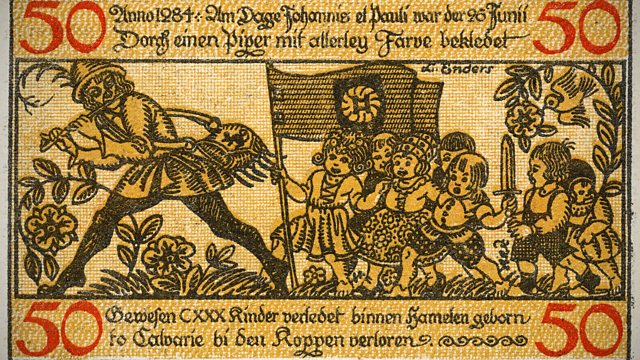Money in Crisis
Neil MacGregor examines the emergency money created during World War I and its aftermath, when no metal was available, and considers the crisis of hyperinflation in the 1920s.
Neil MacGregor examines the emergency money - Notgeld - created during World War One and its aftermath. Small denomination coins began to disappear because their metal was worth more than their face value. People hoarded them or melted them down. Paper notes replaced coins, but as cities produced their own money, there was also currency made from porcelain, linen, silk, leather, wood, coal, cotton and playing cards.
He also focuses on the crisis of hyperinflation in the early 1920s. At its peak, prices doubled every three and a half days, and in 1923 a 500 million mark note might buy a loaf of bread.
Producer Paul Kobrak.
Last on
More episodes
Previous
![]()
Notgeld, inflationary banknotes and Nazi propaganda
See all the banknotes that Neil MacGregor describes in this programme.
![]()
Fragments of Power
Neil MacGregor explains how coins reveal the range and diversity of the Holy Roman Empire
Broadcasts
- Wed 29 Oct 2014 09:45BBC Radio 4 FM
- Wed 29 Oct 2014 19:45BBC Radio 4
- Thu 30 Oct 2014 00:30BBC Radio 4
Featured in...
![]()
Germany: history and culture—Germany: Memories of a Nation
A collection of Radio 4 programmes about Germany.
Made in Germany: the stories of 10 fascinating objects
10 reasons we know Germans love beer and sausages
10 things you may not know about Germany
Podcast
-
![]()
Germany: Memories of a Nation
Neil MacGregor explores 600 years of Germany's complex and often challenging history.








